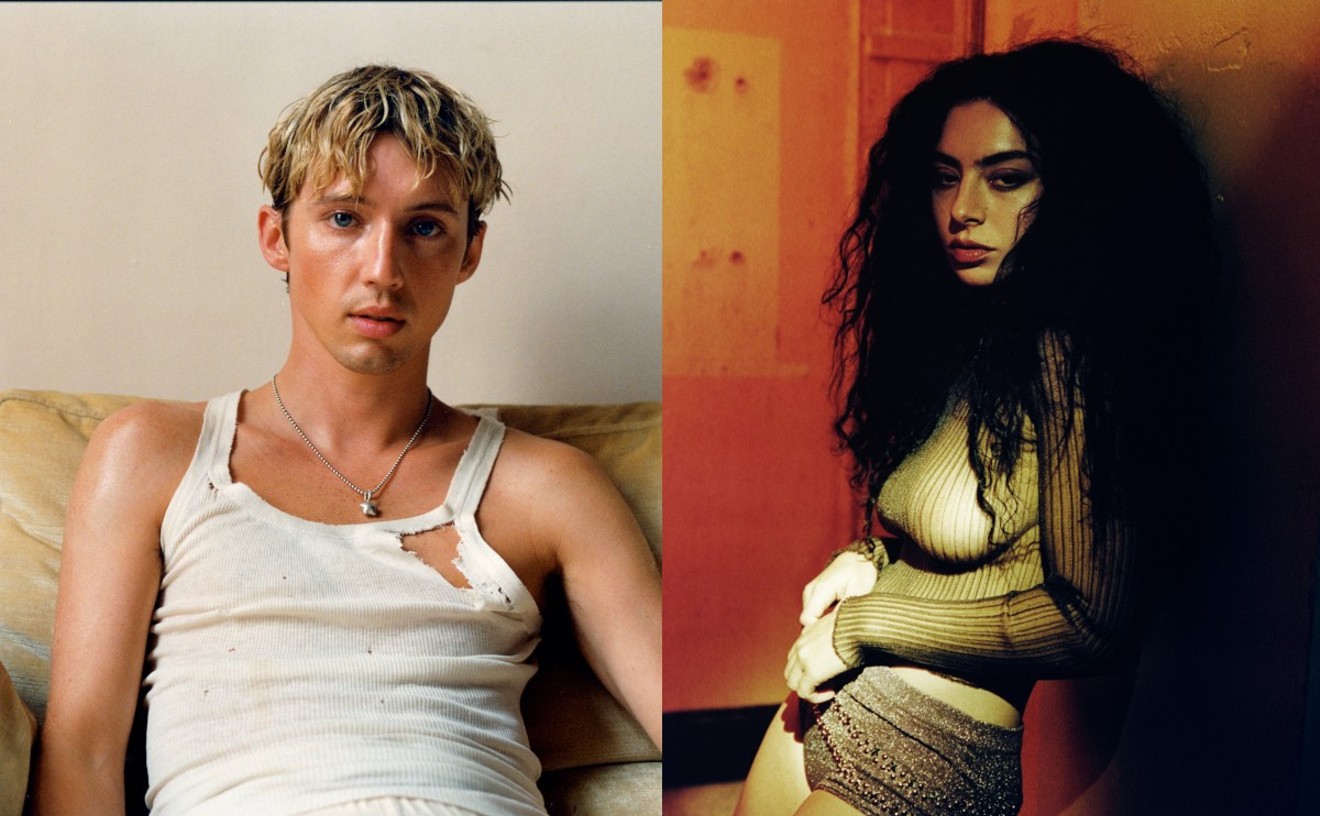Calling back many of the same characters and more than a few of the same jokes, 2 Days in New York, Julie Delpy's fourth film as writer-director, is a sequel to her 2007 2 Days in New York.
A spinoff of sorts itself, Paris piggybacked on the popularity of 2004's justly enshrined romantic confessional Before Sunset, in which Delpy acted and collaborated on the screenplay. Like Sunset's Celine, the character of Marion in Paris was evidently drawn from Delpy's own personality and experiences, but this Marion was a self-portrait burnished of any idealization — tousled, self-conscious, combative, confrontational, and often downright grating.
In Paris, Marion and her kvetching, hypochondriac American boyfriend, played by Delpy's then-partner, Adam Goldberg, were stopping in on her French parents during a European tour, with her wrestling with commitment phobias along the way. In 2 Days in New York, Marion's a mother, fortyish, and cohabiting in Manhattan with Mingus (Chris Rock), who's not the father of her kid. Mingus has his own radio call-in show, while Marion is preparing for a gallery exhibition of her photographs — double portraits of couples in bed — costarring herself. The defining theme is "relationships fading over time," underlining the precarious state of her domestic situation.
Foreboding is ramped up into crisis as Marion's family arrives from France for a visit. Her father, Jeannot (Albert Delpy, Ms. Delpy's actual father), is a stocky, snowy-bearded soixante-huitard ex-hippie who supplements limited English with an insinuating leer, and who has a habit of keying gas-guzzlers. As if this wouldn't be enough to manage, he's accompanied, unannounced, by Marion's exhibitionist sister, Rose (Alexia Landeau), and her scuzzy boyfriend, Manu (Alex Nahon), who likes to brag that he gave Marion her first orgasm.
Rock, who quite unsuccessfully raunched up Éric Rohmer's 1972 moral tale Chloe in the Afternoon as I Think I Love My Wife in 2007 — a project rather akin to Delpy's coarsening of the classic French-dialogue comedy — has a good forum for his brand of beleaguered buppie exasperation here. As in Paris, the source of much of the material is the clash between European and American manners, cartooned as louche and overly fastidious, respectively, with expatriate Delpy stuck somewhere in the middle. As the action has moved into Woody Allen's backy ard, we get a reference to Alvy's vision — imagining himself in Hasidic dress — at the Hall family dinner table in Annie Hall; here, Mingus dreams of Marion's family as decadent, banqueting, be-wigged Louis XVI courtiers. Added to culture clash is the factor of race: Mingus is African-American, so he has to endure curious compliments like Manu's "You're so lucky to be black." This might seem pretty absurd, except for the fact that it's pretty near to the sort of thing that well-educated negrophile Europeans have actually been known say — instead of Paris's cracks at French xenophobia, the joke is on the oblivious condescension of well-meaning French liberalism.
As in Paris, Delpy periodically interrupts the flow of the story banal with voiceover musings and whimsical montage cutaways. As in Paris, Delpy's sense of humor skews to the blue, with much scatology and foreplay going awry: Marion and Mingus meet cute in the offices of the Village Voice, where he is apparently smitten by discussion of her incontinence, and at the film's close, all of her enemies are spattered with pigeon shit, showing Delpy's vindictive side. The one recurring character from Paris who's absent is Marion's mother — played in Paris, true to pattern, by Delpy's real-life mother, Marie Pillet, who died in 2009, the same year that Delpy herself became a mother. Delpy seems to be working through these personal losses and gains in New York: Jeannot plays a recent widower here, while Marion's voiceover refers occasionally to the fact of her mother's passing.
New York's various threads — the loss of the mother, for one; the difficulty of ongoing, nurturing couplehood in a world without happy endings, for another — are not so much worked through or developed as they are strewn about, picked up and set down and forgotten only to be stumbled over again later, like toys scattered through the apartment. (The children, by the way, are never more than an inconvenient aside.)
Delpy's project of stripping the makeup from her charismatic screen persona extends, unfortunately, to a general slovenliness of technique. She chronically hangs onto scenes for too long, nervously setting up for comic payoff that never arrives. One particularly unwieldy subplot involves Marion literally selling her soul to the highest bidder as a conceptual piece at her art opening then attempting to wrestle it back from the buyer, Vincent Gallo, in a niche-celebrity cameo. It's a facile spoof of the gallery world, standing in for the film industry and Delpy's view of her place in it, which makes it impossible to take Marion's struggle for creative self-fulfillment seriously.
Delpy's guiding principle seems to be that people, especially her heroine, are imperfect and that life is messy. But unflatteringly inverting the ideal — feminine or otherwise — is a shabby method for seeking higher truth, and if life is a jumble, that doesn't mean art necessarily should be. New York's slapdash construction can't elevate the personal to the universal, can't turn solipsism into communion. Delpy, of course, finds her father charming because he is her father, misses her mother for the same reason, and treasures her neuroses because they are her own. What viewers miss is anything inviting us to feel the same way.










